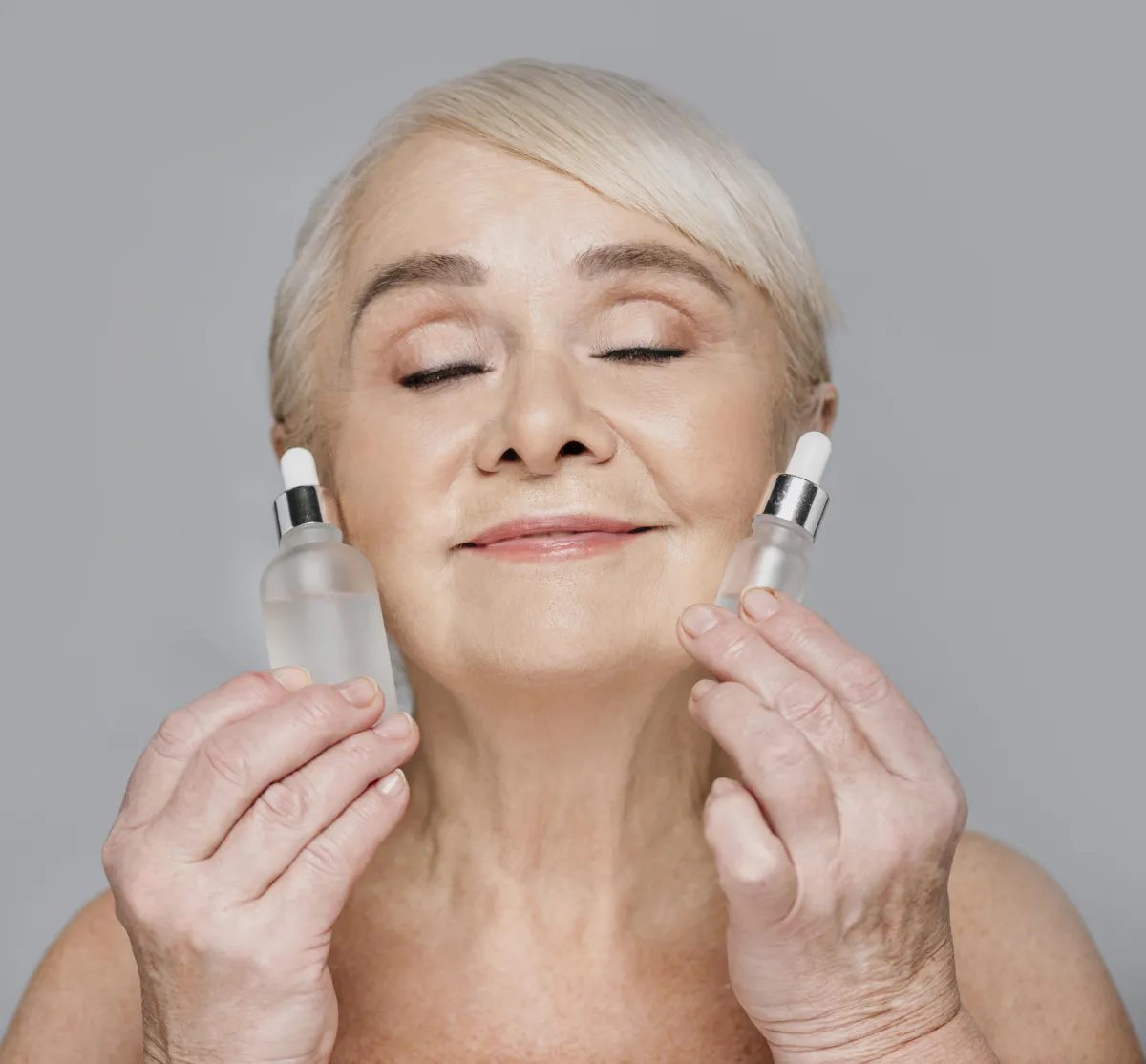Anti-aging and anti-wrinkle skin care treatment
Ages 18-64
FSA or HSA eligible
When you need it, get treatment for anti-aging and anti-wrinkle skin care from an online physician or NP. With Optum Clinic, you can receive virtual treatment on your timetable from reputable telehealth providers at a fixed cost with no unexpected charges. Pay a fixed price; visits with insurance are not accepted. Fill your prescription at our preferred pharmacy if you are prescribed medication or specialized creams for anti-aging and anti-wrinkle care. If you have health insurance, it might pay for the cost of the prescription drugs or treatments you take.

Quickly receive virtual care from a licenced clinician without making an appointment
Respond to a few health inquiries and make contact with a physician.
Any prescribed medication can be delivered or picked up at the pharmacy of your choice.
A fixed visitation fee is required; insurance is not accepted.
Both our policies and the law secure and protect your health data.
Anti-aging prescription drugs vs. over-the-counter products
Prescription
FDA-approved drug
10-20xs more potent
Retinoid
Over the counter
Retinol
Cosmetic (lower testing standard)
Vitamin-A derivative
Common prescription wrinkle creams
Retinoids are cell regulators that increase the amount of collagen in your skin. Retinoids offer anti-aging properties that have been clinically demonstrated to reduce fine lines and wrinkles, smooth out skin texture, and even out pigment when administered for three to six months.
Tretinoin
First-generation topical retinoid
Available in wide variety of strengths and forms
FDA-approved for photoaging and acne
Boosts skin cell turnover
Tazarotene
Third-generation synthetic retinoid
Available in 0.45%, 0.5%, and 0.1% strengths
Can also treat psoriasis and acne
May work faster than tretinoin
Your clinician will assess your symptoms and medical history to determine the most suitable anti-aging treatment, if any, for your specific needs
Complete the intake form.
Speak with a clinician without making an appointment.
Obtain a customised treatment strategy
Frequently Asked Questions
Do I need to receive this treatment?
This treatment may be right for you if:
• You wish to lessen the wrinkles and fine lines on your skin.
• You desire skin that looks younger.
• You are not pregnant or nursing.
Why does skin age?
Our skin is affected by two different kinds of aging processes:
1. Inherent or chronological aging. Our cells normally go through this process in between birthdays.
2. Extrinsic or photoaging aging. This is the result of ultraviolet (UV) light from the sun causing accelerated aging.
Your skin phototype and the length of time you spend exposed to UV radiation determine how much photoaging you will experience. Skin damage from prolonged or frequent sun exposure might include:
• Fine lines and wrinkles
• Hyperpigmented age spots (dark spots)
• Loss of elasticity
You are more likely to observe the signs of photoaging on your skin if you are older than thirty, have light to medium skin tone, are prone to sunburns (skin phototypes I to III), and have spent a lot of time outdoors without wearing broad-spectrum sunscreen.
If this worries you, there are several over-the-counter and prescription substances with clinical evidence of anti-aging and anti-wrinkle properties that can help reverse some of this sun damage.
How can I shield my skin from aging's effects?
Your skin phototype and genetics play a major role in determining how your skin ages. For instance, phototypes V and VI (those with deeper skin tones) may begin to experience the effects of photoaging 10–20 years later than their lighter-skinned counterparts.
However, smoking, air pollution, and sun exposure can all quicken the aging process. Is it possible to postpone aging? According to research, you can keep your appearance more youthful by doing the following:
• Wear broad-spectrum sunscreen (SPF 30 or above) every day, even when you're not in direct sunlight (yes, even indoors)
• Eat a healthy diet, loaded with antioxidant-rich foods like colorful fruits and vegetables
• Stay hydrated
• Keep your face moisturized
• Avoid tanning beds and prolonged sun exposure
• Don't smoke—it damages skin cells
• Get plenty of sleep
What adverse effects could retinoids cause?
When you first begin treatment, doctors usually prescribe the lowest active dose of retinoids because they can cause skin irritation, redness, and peeling. As your skin grows more tolerant, the concentration of the medication can be increased gradually. During the first two weeks of treatment, side effects usually reach their height.
Can I pay for a visit or prescription drugs with my health insurance?
At this time, Optum Clinic Clinic does not accept health insurance for visits. You can submit a claim to your insurance provider for reimbursement, but we can’t guarantee they’ll reimburse you. If you typically pay for your prescription drugs with insurance, you can do the same with those that are prescribed by Optum Clinic. The cost of medication isn’t included in the cost of your visit.
How does Optum Clinic protect my health information?
Optum Clinic protects your health information by strictly following the requirements of the Health Insurance Portability and Accountability Act (HIPAA). HIPAA governs what Optum Clinic and your healthcare providers can do with your medical information, as well as your contact and payment information. Optum Clinic doesn’t and will never sell your personal information. Learn more on our privacy page.
